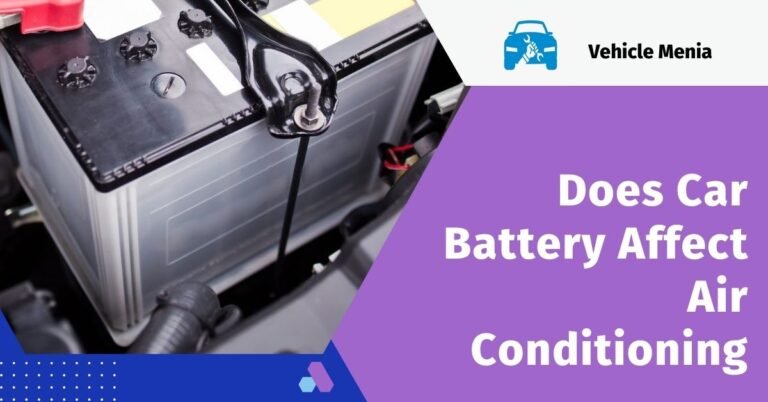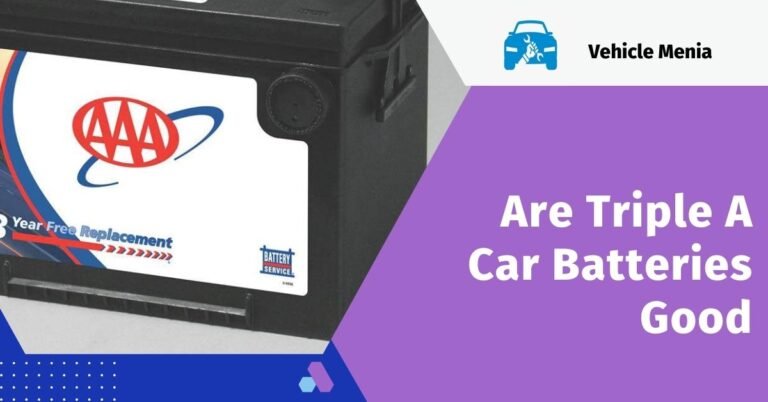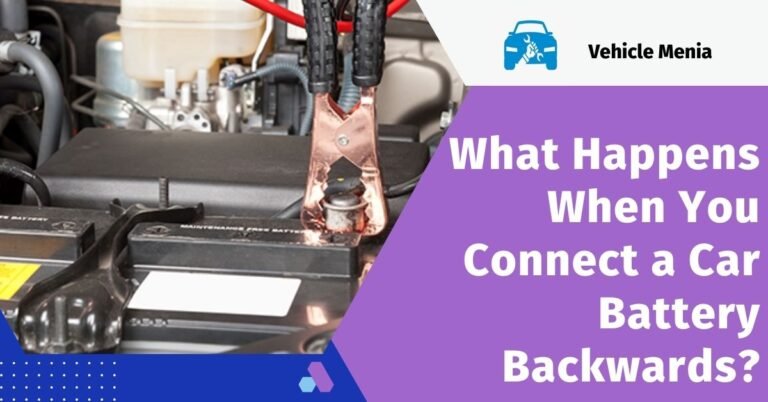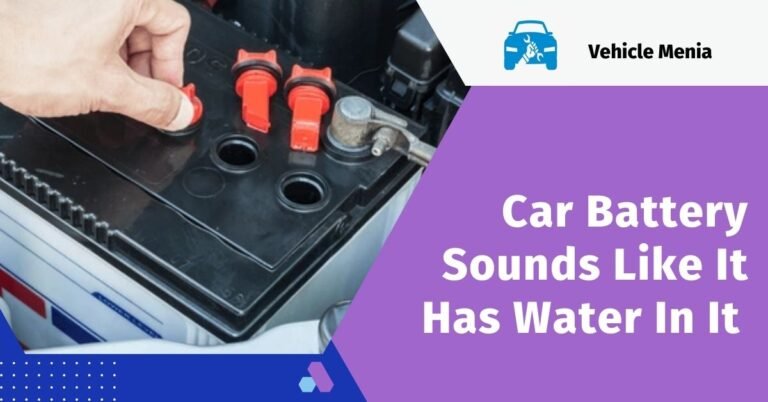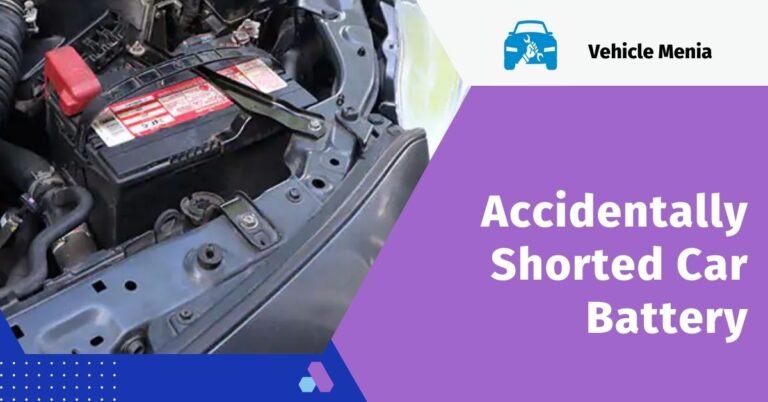Car Won’t Start After Battery Change, Clicking Noise? If your car is still clicking rapidly after replacing the battery, you may have alternator issues or ignition wiring problems. An alternator malfunction is often due to a bad diode, which creates an electrical spike when you try to crank your car.
Why The Car Is Making Noise After You Change The Battery: The Different Noises Explained:
Now, let’s examine all these sounds, some possible causes, and how to fix them.
Clicking Sound After Car Battery Change
One of the common problems is a clicking noise while trying to start the car. This could be due to:
- Loose Battery Connections: A poorly connected or corroded connection in the battery will not enable the battery to provide enough power. Verify that all the connections are adequately tightened and clean.
- Faulty Starter Motor: Probably, the starter motor is faulty. This makes it click without engaging the motor. Testing of the starter motor or even consulting a mechanic could be necessary.
- Weak Battery Charge: If it’s not a full charge, the power from the battery will not be enough to turn on the engine and might make a clicking noise.
- Alternator or Ignition Wiring Problems: Failure of these parts to work properly can also result in clicking noises..
Grinding Noise When Starting Car After Battery Change
Generally, grinding indicates a problem with the starter motor’s engagement with the flywheel. Causes may include misalignment or problems with the starter motor itself.
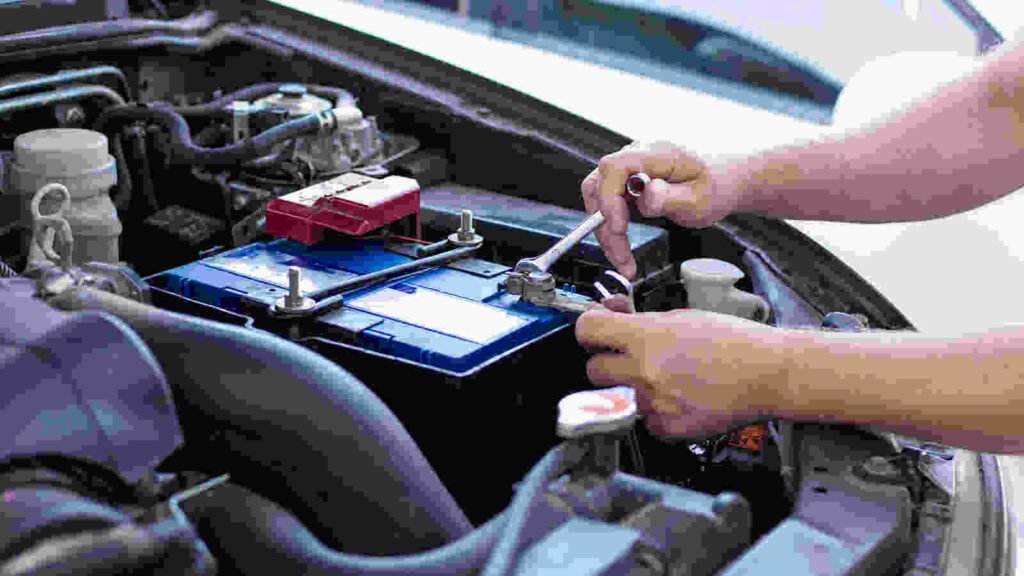
Ticking Noise
- Weak Battery: Probably the battery is too weak to hold a good charge.
- Problems in the Ignition System: Faulty ignition components can cause ticking sounds as they fail to ignite properly.
Whirring or humming sounds
Humming and whirring noises probably point to a malfunctioning alternator or other electrical component. The alternator might be straining to charge the new battery and may create these sounds.
Buzzing or Whining Sounds
Much attention is usually focused on voltage regulator problems or even grounding issues, which are normally buzzing or whining. The voltage regulator may be malfunctioning, unable to supply power constantly and hence producing a buzzing sound.
Repeated Clicking When Trying to Start
- Battery Power Issues: Insufficient power from the battery due to loose connections or a weak charge.
- Starter Relay Problems: A faulty starter relay can cause repeated clicking without starting the engine.
Sizzling or Hissing Sounds
Sizzling or hissing sounds might indicate battery leaks or electrical short circuits. A leaking battery can produce sizzling sounds.
How to Fix Car Making Noise After Battery Replacement
Fix Clicking Noise:
For loose battery connections, tighten and clean all battery terminals to ensure a solid connection. Remove any corrosion using a wire brush and a mixture of baking soda and water. If the starter motor is faulty, have it tested by a professional and replace it if necessary.
First, charge the battery completely and then check its voltage with a multimeter; if it’s not holding a reasonable charge, just replace the battery. Finally, have the alternator and ignition wiring checked and repaired or replaced as necessary by a mechanic.
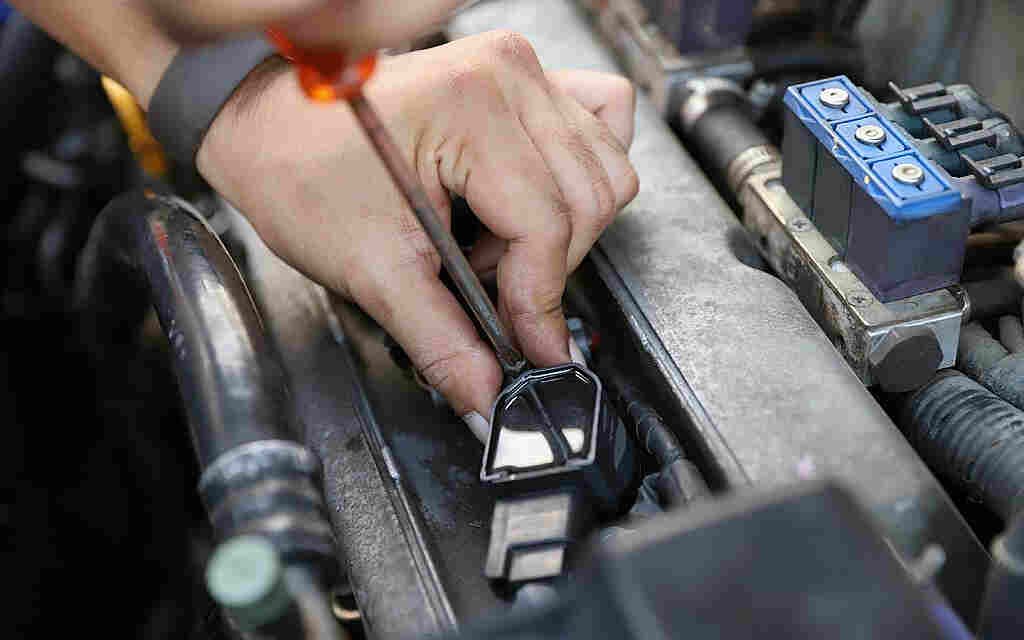
Fix Grinding Noise:
Check whether the battery is installed correctly and everything else is properly aligned and tightened. If it still grinds, replace the starter motor if there are signs of wear or damage.
Fix Ticking Noise
- Charge the battery completely. If it is still fast in losing charge, then replace it.
- Check the ignition system, spark plugs, and wiring. Replace any worn-out parts.
Fix Humming or Whirring Noises
Have the alternator tested for proper function and replace it if it is not charging the battery effectively. Inspect all wiring and electrical connections for damage and repair or replace any faulty wires or components.
Fix Buzzing or Whining Sounds
● Voltage Regulator Problems: The voltage regulator might be malfunctioning.
● Grounding Issues: Poor grounding can cause electrical interference.
Fix Repeated Clicking When Trying to Start
Tighten all connections and ensure the battery is fully charged. If it continues to fail, replace it. Test the starter relay and replace it if it is not functioning correctly.
Fix Sizzling or Hissing Sounds
Inspect the battery for leaks. If a leak is found, replace the battery immediately and clean any leaked acid safely. Inspect all wiring and connections for signs of short circuits and repair or replace any damaged wiring.
Louder Engine Noise After Battery Replacement
If your car’s engine is louder after a battery replacement, it could be due to the ECU resetting and needing time to relearn optimal settings, issues with the Idle Air Control (IAC) valve, electrical interference from disturbed connections, the alternator working harder to charge the new battery or loose components.
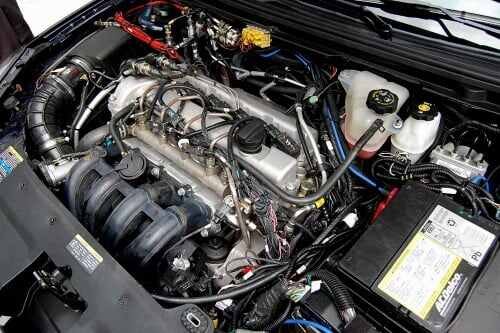
To fix these, drive normally for a few days, clean or replace the IAC valve, ensure all electrical connections are secure, allow time for the alternator to fully charge the battery, and inspect and tighten any loose parts. If the noise persists, consult a professional mechanic.
Do I Need To Reset The Car After Changing The Battery?
Yes, if enough time has passed since disconnecting the battery. Once all residual electricity has dissipated from your car’s circuits, the volatile memory in your car computer, also known as the Engine Control Unit (ECU), will be cleared, resetting it to its default settings.
Can A Bad Battery Cause Engine Vibration?
When the alternator is not functioning efficiently, it can lead to issues such as engine vibration at idle. This happens because the battery doesn’t receive an adequate charge, causing a strain on the electrical system.
Related Questions:
Is It Normal For Car To Idle Differently After Battery Change?
The computer lost memory of the idle parameters when the battery was replaced which is the cause of the rough idle. Normally it will relearn itself by driving at varying speeds for a week.
Why Is My Car Acting Weird After Changing The Battery?
After the period with the absence of power, your car’s computers may turn on malfunction indicators. The electronics act weirdly. Some may forget their memories or revert to other default settings when the old battery is disconnected..
Can Changing A Car Battery Cause Problems?
One of the most frequent problems after replacing batteries is that your car won’t start. It usually occurs because of improper installation. Switch off your ignition and check for terminals and wires to ensure that everything is in order..
Can A Bad Battery Cause Your Car To Make Noise?
If, when you turn the key to start your motor, all that you hear is metallic clicking, then your battery is dead. That sound means there’s just not enough “juice” in the battery to turn the starter motor. The clicking you hear is the feeble attempt to engage the starter with insufficient energy.
Why Is My Car Battery Making A Noise?
Clicking sounds are often related to the starter relay and solenoid, indicating that maybe your battery is just a little low on volts. One loud click could mean your starter relay or motor doesn’t engage with the engine. Fast clicking, though, usually turns out to be because of low volts from the battery.
Does A Dying Battery Make Noise?
When you turn your car on, there is a clicking sound. A fast, repetitive click when you turn the ignition key on could be caused by a failing alternator, a dirty or damaged battery, or even a dying car battery.
Conclusion
Unusual noises following battery replacement are always somewhat worrisome, but most have direct causes and easy cures. Clicking can come from loose connections, failure of the starting motor, or a low charge on the battery. Grinding almost invariably means that the starter motor has become misaligned.
The humming or whirring noise is most likely originating from an alternator or electrical problem. Voltage regulators and grounding often cause buzzing or whiny noises. These issues must be addressed by securing connections to test and possibly further replace the faulty components and then allowing the car’s systems to reset and relearn optimal settings.

